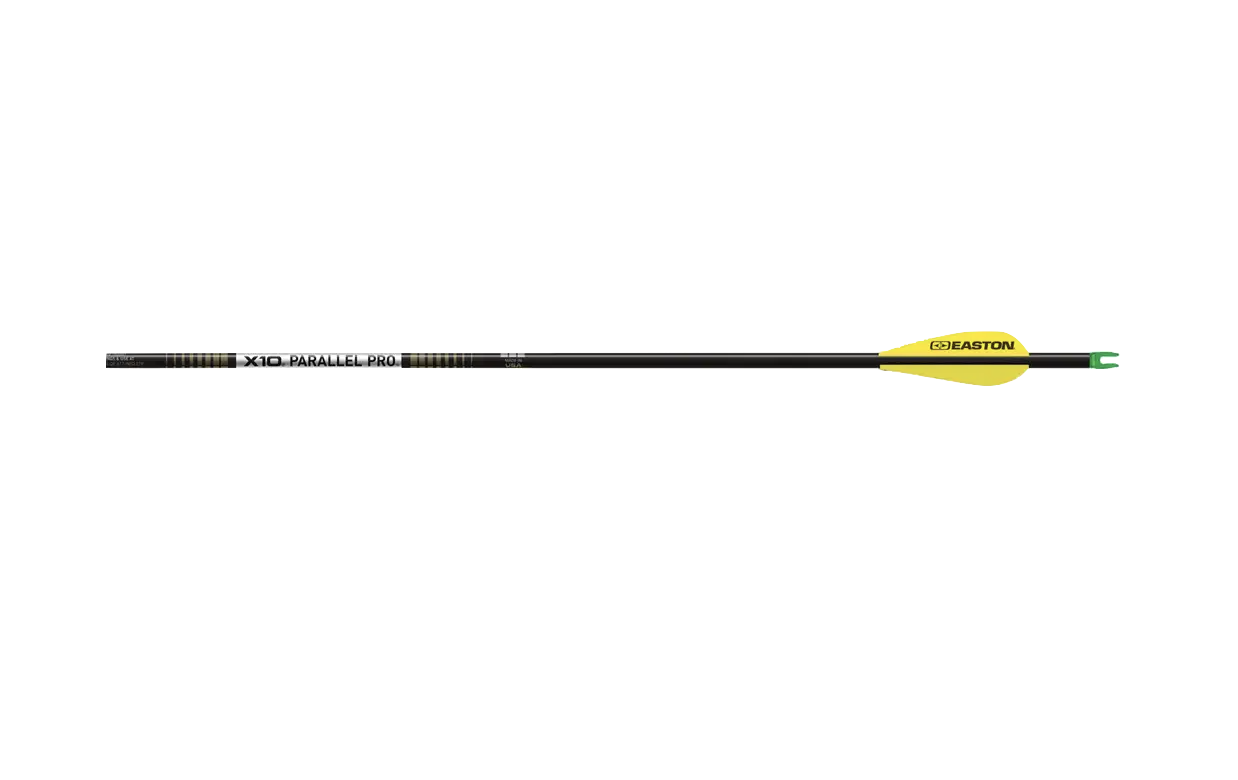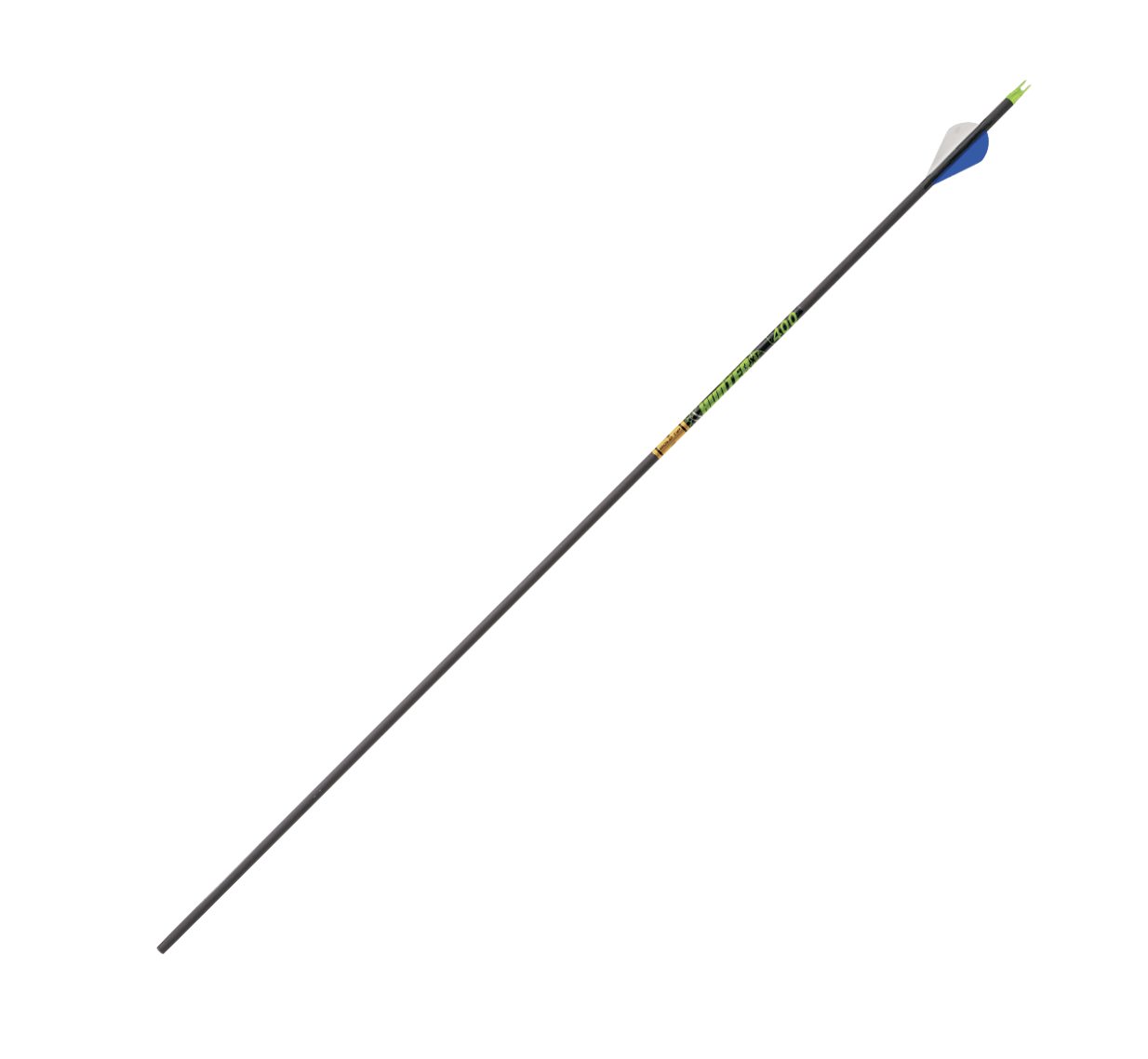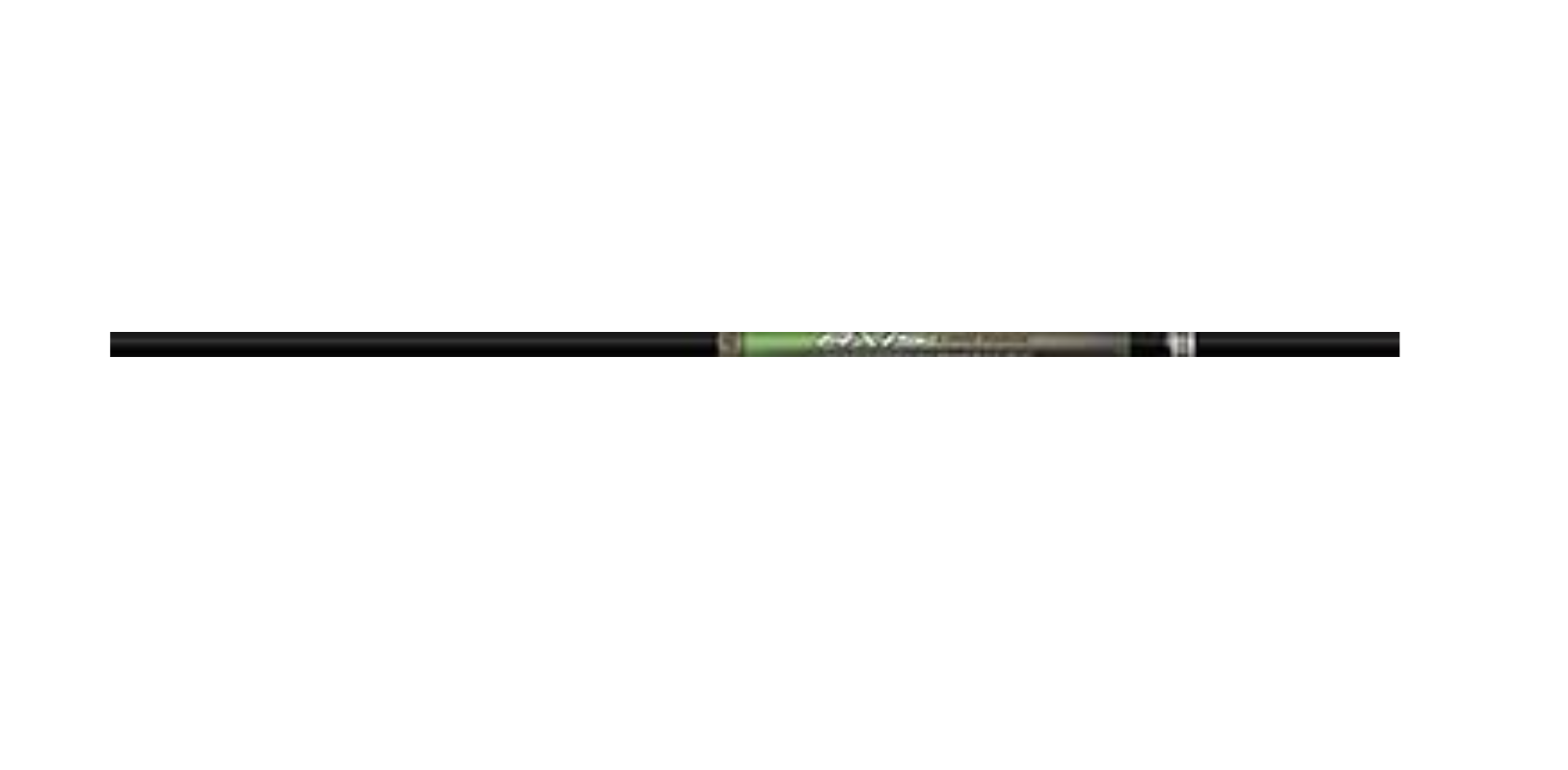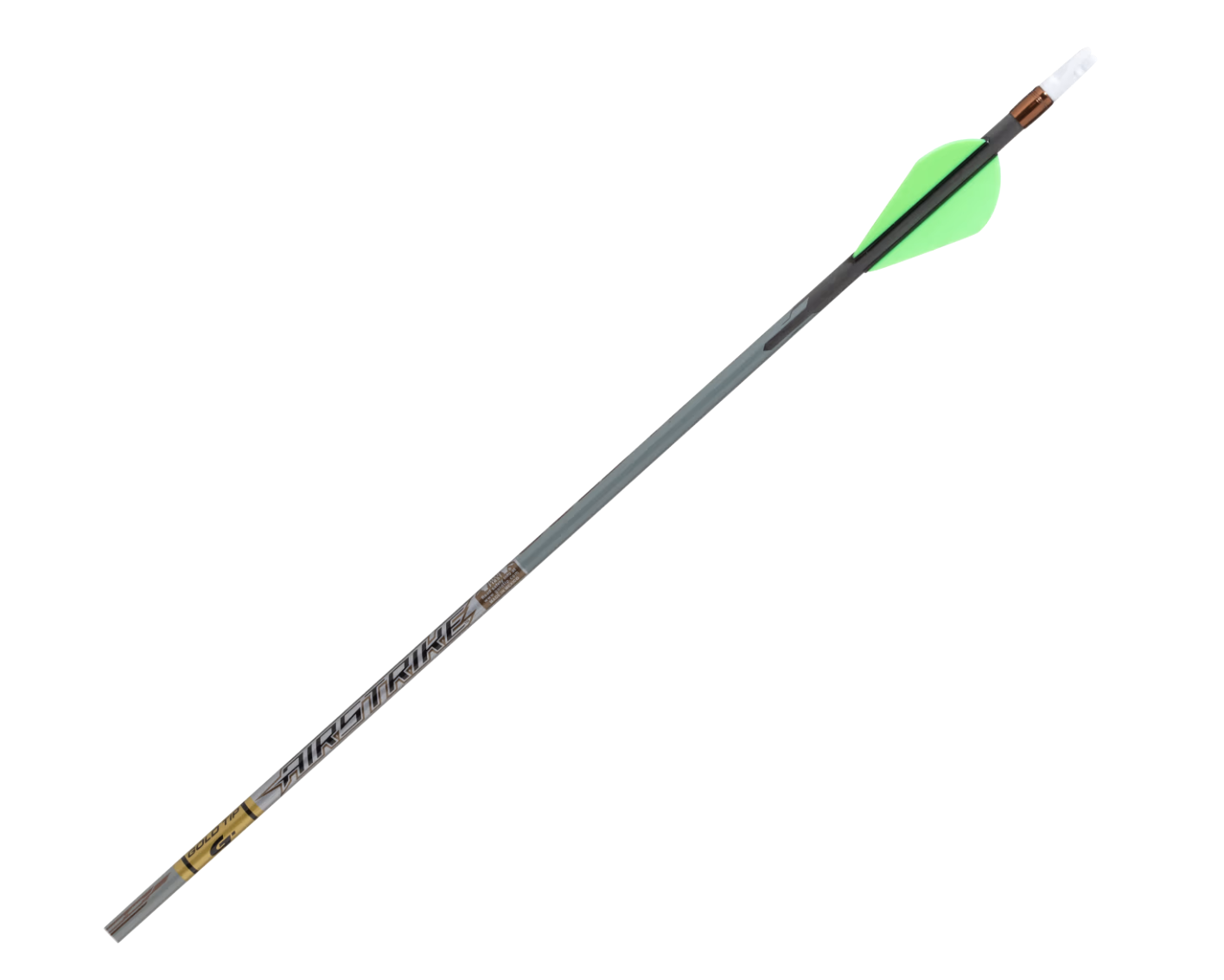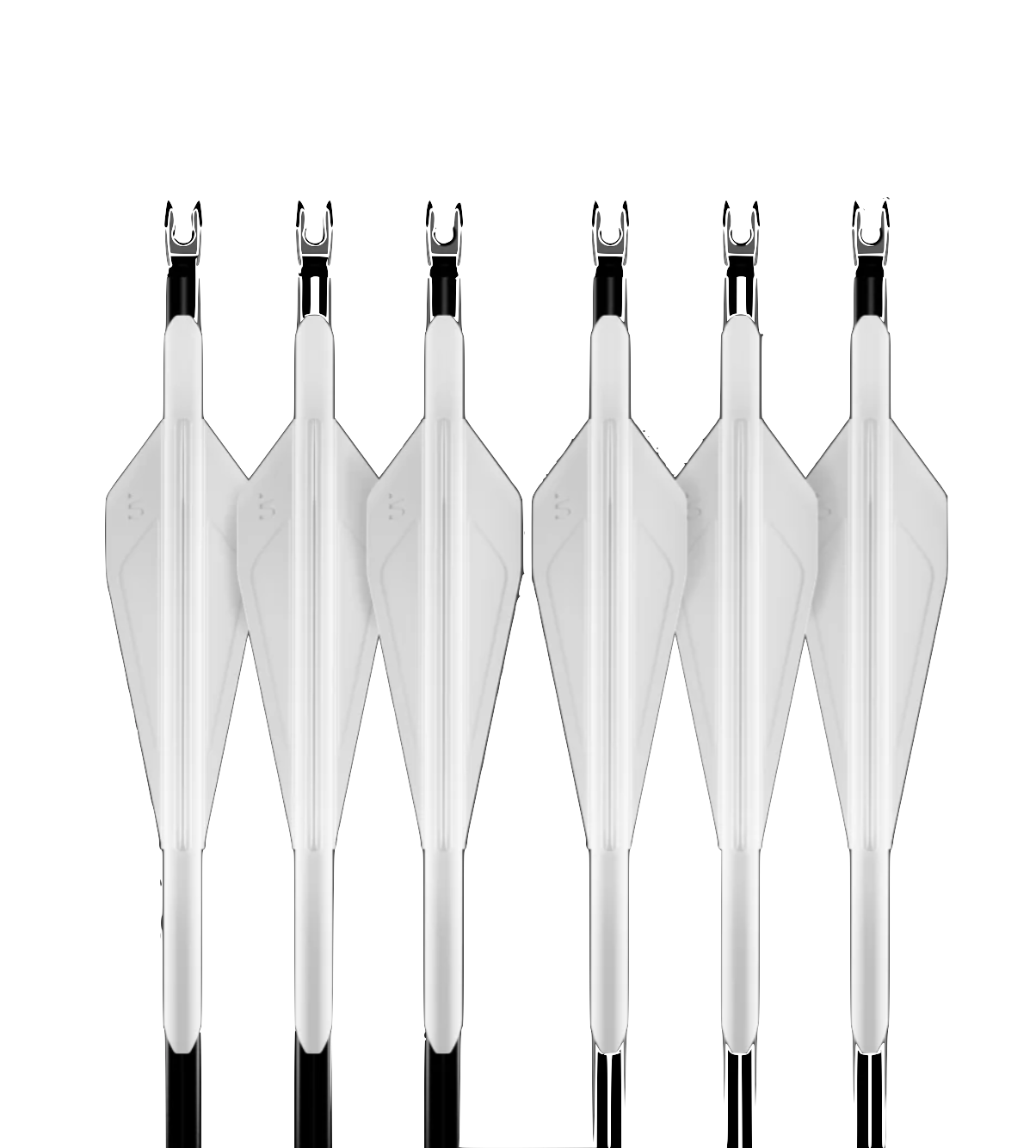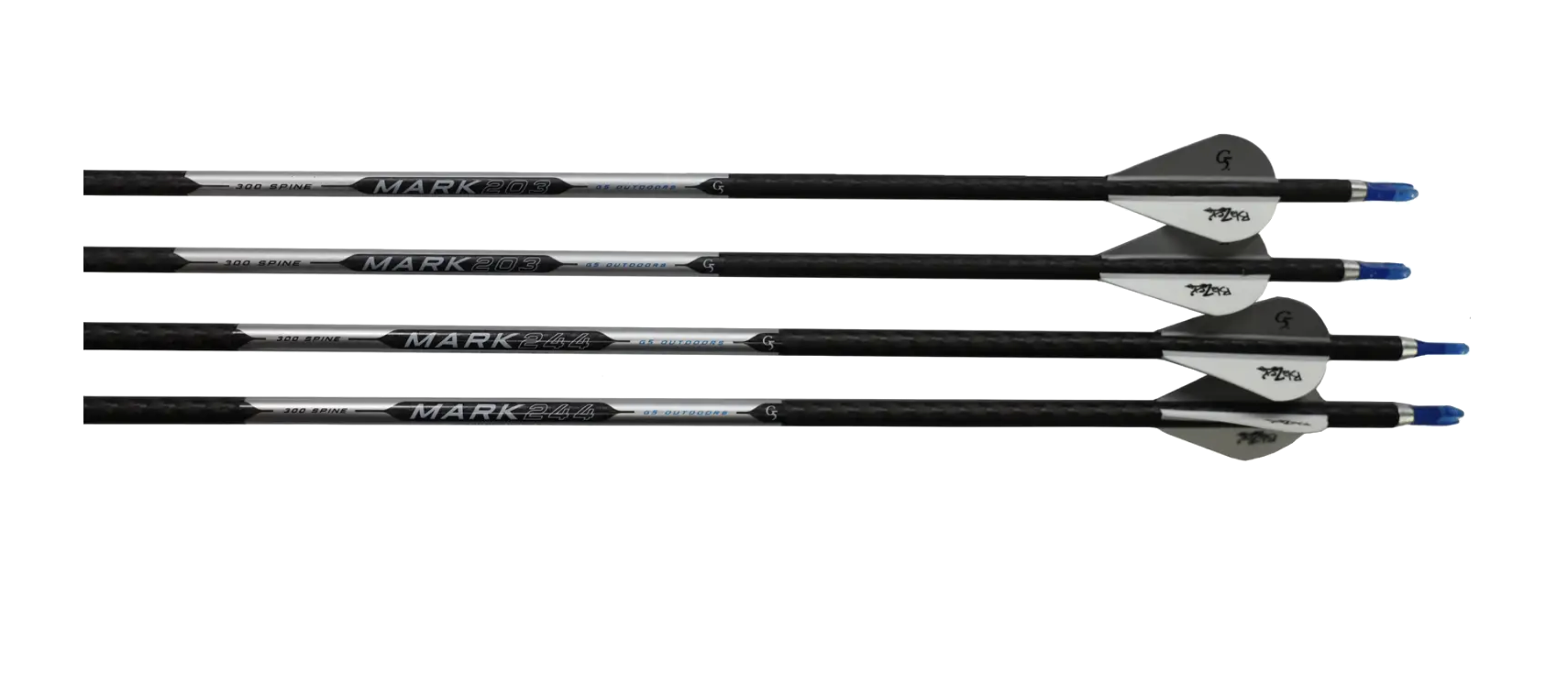We may earn revenue from the products available on this page and participate in affiliate programs. Learn more ›
Hunting arrows are overlooked. Everyone obsesses over compound bows and accessories, but rarely do they put the same thought or analysis into arrow selection. On a recent visit to a Colorado archery pro shop, I watched a gentleman fret for hours, asking scores of questions and testing various sight and rest options. He wanted to ensure his selections were perfect for his new flagship bow. When it came time to pick his arrows, he changed his tune, going with the cheapest he could find.
I see the attraction of sights, rests, releases, quivers, and stabilizers. You can customize them to match your bow. That’s great. However, it’s the arrow that travels through the air toward your target. It’s the only accessory that actually leaves the bow and interacts with the thing you’re aiming at. If you don’t match the arrow’s spine (stiffness) to your bow’s poundage, you will struggle with accuracy. As such, here are our picks for the best hunting arrows.
Best Overall: Easton X10 Parallel Pro
Best Long-Range: Easton 4MM Axis Long Range
Best Budget: Gold Tip Hunter XT
Best Lightweight: Carbon Express Maxima Sable RZ Select
Best for Youth: Victory VForce Junior
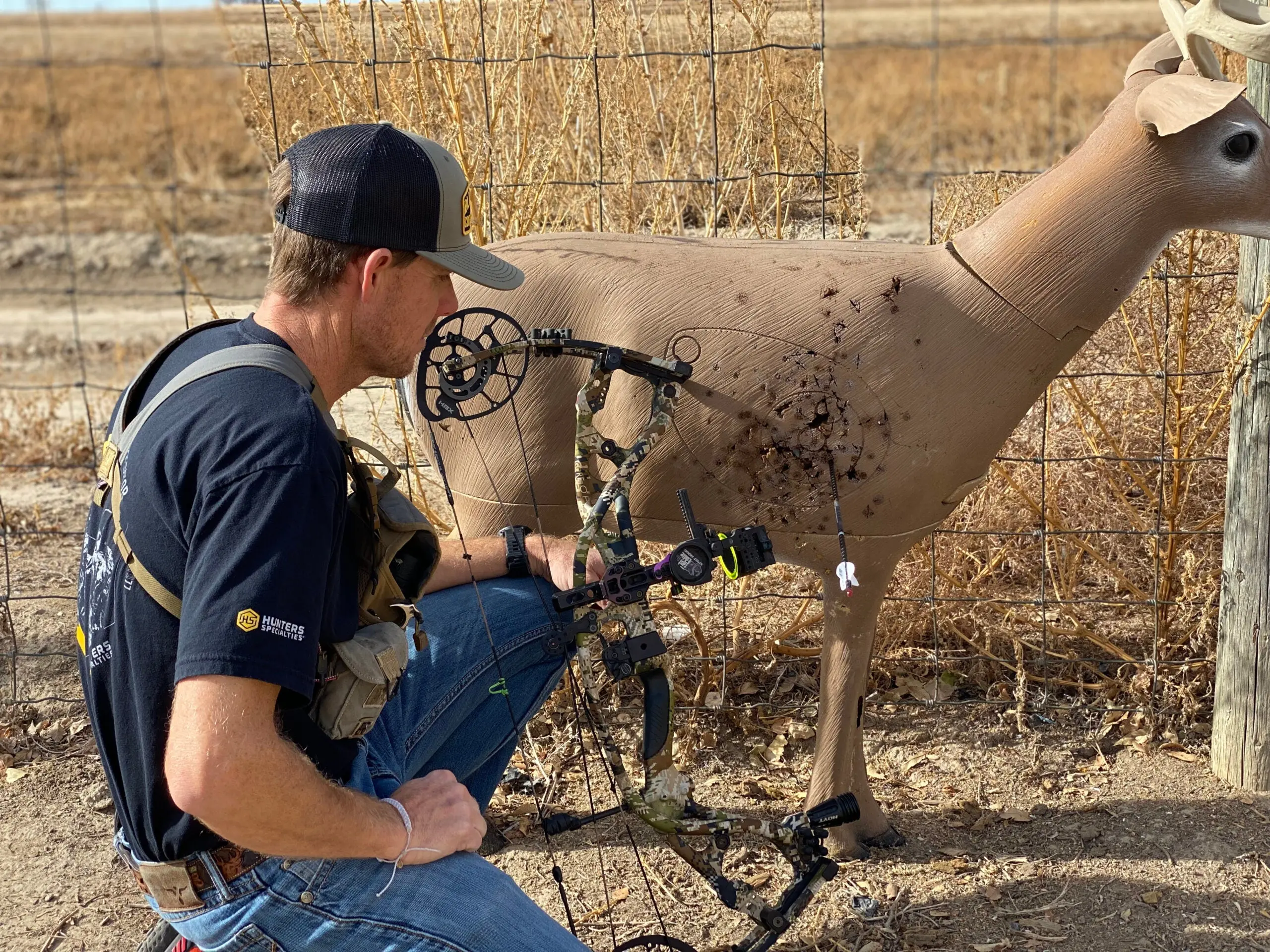
Best Overall: Easton X10 Parallel Pro
Specs
Carbon fiber bonded to 7075 alloy core
+/- .001-inch straightness
+/- .5 grains in precise weight codes
Pros
Small diameter minimizes wind drift
15 spine sizes to fit any setup
Deep penetrating
Ultra accurate
Cons
Price
Components sold separately
This is my favorite arrow of 2024, and its shaft is the most accurate and dependable I've ever sent downrange. The X10's legacy in competition is well-known and unparalleled. It is the winningest arrow in competition history, and for 2024, Easton offers the arrow in a hunting version.
Noted in the cons section is that Easton sells X10 components separately. This is only a drawback from a price point. The separate components are stellar when it comes to shooter customization and building a shaft designed for your setup and application. You can pair your X10 spine choice, of which there are 15, with five nock types, a 4MM Nock Collar, and four Match Grade Half-Outs.
I tested these arrows out to 120 yards using 55-grain Aluminum/Aluminum Match Grade Half-Outs with 4MM Microlite Nocks and standard 8-32 100-grain field points. The arrows fly fast, quiet, and accurate, plus the small diameter resists side-to-side wind drift. I was also impressed by the ultra-durable, high-strength carbon fiber bonded to a 7075 alloy core. Not only does this give the X10 Parallel Pros an added element of strength, but it also boosts penetration.
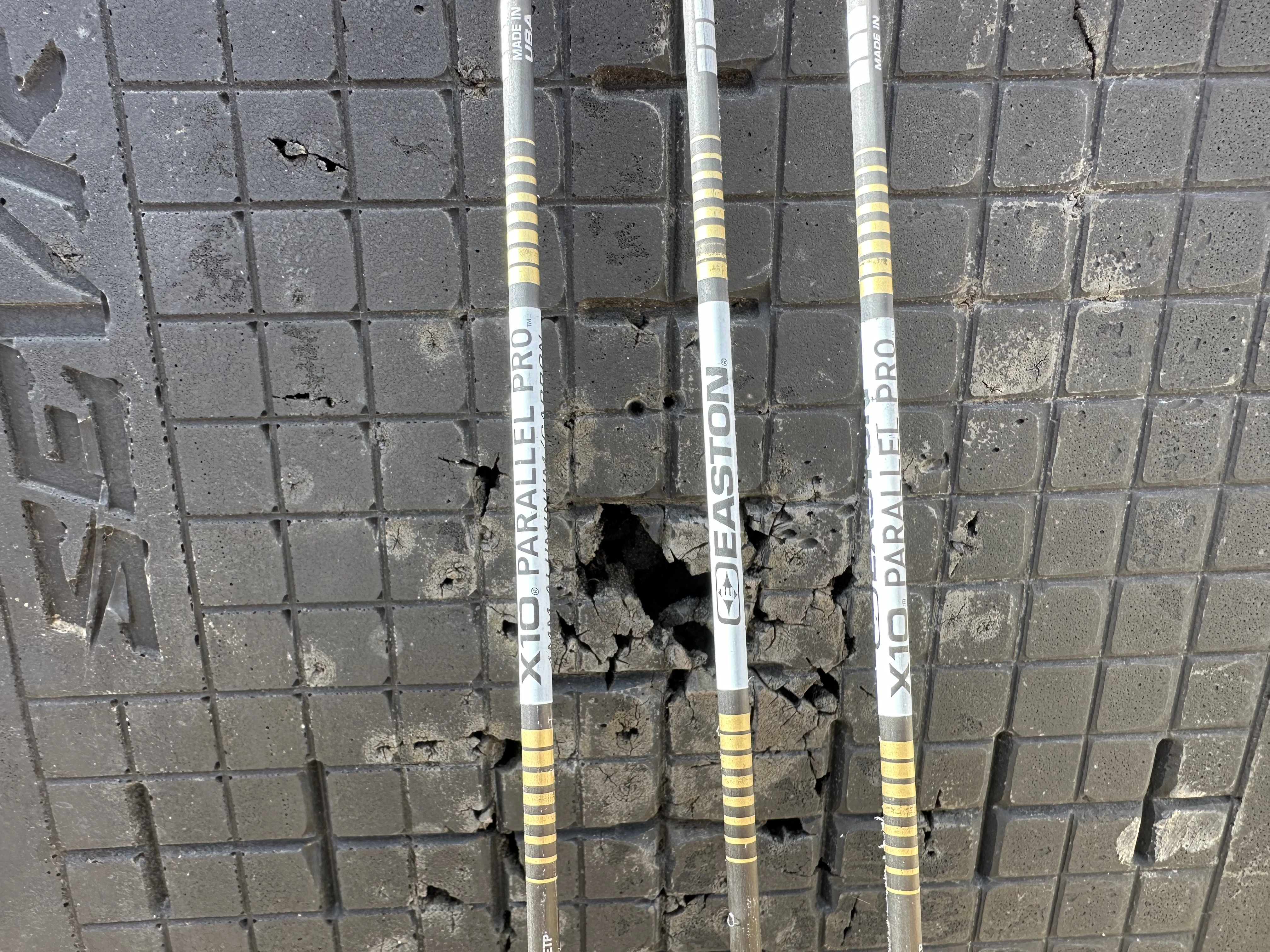
Best Long-Range: Easton 4MM Axis Long Range
Specs
Super straight +/- .001 build with nock collar
Smart Carbon Technology
Dyna-Tek Slick Shield coating
Pros
Accuracy
Speed
Toughness
Cons
High price
If you’re looking to become the most accurate bowhunter you can be and shoot at long distances, there’s no better arrow than the Easton 4MM Axis Long Range. This innovative shaft reduces wind drift and cuts through the air like a laser-guided missile. Spine sizes are plentiful, and the Half-out aluminum inserts are easy to install.
This 4MM Easton offering accepts standard 8-32-thread broadheads for the first time via the Half-out insert; no specialty broadheads or components are needed. The arrow promises excellent velocity and a build that holds up to heavy-bone hits. It’s a solid all-around choice, but if you’re looking to chase pronghorn, mule deer, or bighorn sheep out West, this is your shaft.
Best Budget: Gold Tip Hunter XT
Specs
Tired-and-true performance
.246-inch robust inner diameter
Smart Carbon Technology
Speed and penetration
Pros
Excellent value
Multiple options
Cons
Accu-Lite Inserts allow points and broadheads to rattle loose easily
A staple in the Gold Tip line, one could argue the legendary Hunter XT has filled more freezers than any other shaft. For the money, you can’t beat this shaft’s +/- .003-inch straightness rating, bulletproof build, and incredible blend of accuracy and speed.
Engineered to be versatile, the arrow will work for any game species you pursue. The Hunter XT it comes complete with GT Nocks and Accu-Lite Inserts. Spine sizes of 250, 300, 340, 400, and 500 are available.
Best Lightweight: Carbon Express Maxima Sable RZ Select
Specs
Tri-spine/RED ZONE Technology
Lightweight build with +/- 1.0 grain match weight
+/- .001 real straightness
Pros
Boosted durability with Launchpad nocks and Bulldog nock collars
Flies fast and flat
Cons
A too-close-to-call GPI-to-bow-poundage ratio can lead to poor accuracy and lack of strength
Carbon Express’ Maxima line has given us some remarkable models over the years. For 2022, the story is speed. The Sable RZ Select—available in spine sizes of 350, 400, and 500—was built to increase speed and reduce arrow drop.
The lightweight hunting arrow features TriSpine Technology with 360-degree spine consistency, and the .244-inch inner-diameter hunting arrow is made from 100 percent carbon. A solid choice for short-draw archers looking to boost speed and western hunters expecting longer-range shots.
Best for Youth: Victory VForce Junior
Specs
Multiple spine sizes
Rugged carbon build
Quality nocks and inserts
Pros
Versatile
Tough
Accurate
Cons
Must pay attention to bow weight and spine size to ensure combability
Young archers that chase their compound dreams on the tournament trail and bowhunting woods often struggle to find carbon that fits their needs. Not anymore. Dedicated to creating a shaft designed to meet the needs of every archer, Victory has crafted its VForce Junior. Available in low-poundage spine sizes of 600, 800, and 1,000; these shafts come fitted with Bohning Blazer nocks installed, and aluminum inserts are included. The arrows can be purchased as raw or fletched shafts. Those that go with a from-the-factory fletch can expect two-inch Q2I Raptor vanes. This is a top-end arrow for youth archers with bow poundage that won’t reasonably accommodate a 500-spine arrow.
Easton 5MM FMJ Autumn Orange 100 Year Limited Edition
Specs
Hidden Insert Technology (HIT)
Built like a tank with an aluminum jacket over a carbon core
Deep penetrating, with easy target pull
Pros
Accuracy and reduced wind drift
Deep penetration
FOC easily improved with 5MM Brass HIT Break-off inserts
Cons
Aluminum wrap can require intermittent care
To celebrate 100-years of arrow-building perfection, Easton crafted its 5MM FMJ Autumn Orange. A tried-and-true arrow proven in the whitetail woods, sage-dappled plains, and the Rockies, you can’t go wrong when you sling this shaft. Of course, it’s a do-it-all arrow, and we could have easily slugged it as such. I’ve yet to shoot a shaft that more perfectly marries accuracy with deep-penetrating devastation.
The reduced surface area gives the wind less to push against in flight, and HIT inserts create a seamless point-to-shaft bond. The arrow is available in spine sizes of 250, 300, 340, 400, and 500 in appropriate grain-per-inch (GPI) builds. The all-aluminum jacket wraps around the carbon core to penetrate deep and prevents bonding to foam targets. This great do-all shaft will serve you well on a variety of hunts, and is without question the best hunting arrow I’ve ever used for elk.
Gold Tip Airstrike
Specs
.204-inch inside diameter with 204 Accu-Touch Nock included
Dyna-Tek Slick Shield coating
Built for speed & long-range accuracy
Pros
Shaft strength
Accuracy
Easy removal (Dyna-Tek Slick Shield coating)
Cons
Beefy nock collar to accommodate the .204 Accu-Touch Nock
The Gold Tip Airstrike has proven itself to me time and time again. Western bowhunters cheer the arrow’s micro-diameter build and its ability to blend speed with strength. The Dyna-Tek Slick Shield coating makes arrow removal from targets a breeze and helps with downrange penetration.
Whitetail goers tip a hat to its solid build and applaud the arrow’s ability to work at ranges close and far. I like this shaft for western excursions where the distance between the shooter and the target may stretch beyond 60 yards, but it is equally deadly when sitting 20 feet up waiting on a November giant. During my time in the bowhunting woods, I’ve harvested over 25 animals (elk, mule deer, feral hogs, turkey, pronghorn, and whitetail) with this shaft. It’s the type of arrow, the more you shoot it, the more confidence it provides you as an archer and bowhunter. This arrow could have easily been slotted into most any of the other “Best” categories in this article.
UltraView UV 1K
Specs
4.5MM hybrid diameter shaft
Satin ice coating for easy arrow removal
75-grain UV Outsert
Pros
Offered cut and assembled and as bare shafts
Spine calculator available on the website
Come with custom field point with PVD coating
Carbon weave design
Cons
Only three spine sizes
Expensive
When six arrows cost $220, they better be good. To be fair, these arrows are fletched and cut to the archer's specific length, meaning they are tailored to each hunter. While I haven't tested these arrows yet, I have mine in the works. I know I'm going to like the aerodynamic design of 2.875 inches long and .5-inch-tall UV vanes. Plus, these arrows look sharp on the site.
I found the spine calculator on the website easy to use. Enter your draw weight and length, and the calculator will cover the rest. It's obvious UltraView put some thought into this design. These arrows are considered hybrid because of the 4.5MM diameter, which falls between the small diameter standard of 4MM and the standard 5MM.
Carbon arrows stick to high-density foam targets like glue, and I despise pulling and tugging to free them. The UV 1Ks have an ice coating, which, combined with the arrow's smaller diameter, should also boost penetration on big game and be easy to pull from targets. The longer vanes should also stabilize fixed-blade broadheads without creating excessive in-flight noise.
G5 Outdoors Mark Series
Specs
.203 and .244 diameter carbon offerings
Machined aluminum nock bushing
Four spine sizes in 203 and three in 244
Machines aluminum inserts
Pros
Two diameter choices with multiple spine sizes
Nock bushing prevents back-of-arrow damage
Bohning F Nocks included
3 Layer Construction for added durability
Cons
Fletched arrows are only offered with Bohning Blazers
Grace Engineering's success is undisputed, and the Mark Series of arrows puts an exclamation point on its legacy. I love that every Mark Series arrow is hand-inspected and that both bare shafts and fletched shafts are available. Machined aluminum nocks prevent back-end arrow damage while boosting overall arrow strength, and G5's proprietary 3-Layer Carbon Construction further increases shaft toughness while aiding in accuracy.
All arrow components are made in the USA, and the Silk Coating on the arrows increases penetration and allows for easy arrow removal from foam targets. Two diameter sizes and multiple spine sizes give archers options, and though I don't love the in-flight noise Bohning's 2-inch Blazer vanes create, they have proved an accurate vane and steer these arrows well.
How I Picked the Best Hunting Arrows
During my 20-plus-year bowhunting tenure, I’ve slung plenty of carbon and aluminum downrange. In addition to testing each of these shafts independently with field points and mechanical and fixed-blade broadheads, I have also toted each shaft afield at least once.
During my range testing, arrows were independently weighed using a Hornady digital grain scale, and all were fired through a Caldwell Ballistic Premium Chronograph. Shafts were fired in crosswinds, headwinds, and tailwinds, and each shaft was fired at distances between 20 and 100 yards.
What to Consider When Choosing Hunting Arrows
Though they appear simple, arrow shafts have a number of important nuances that require your consideration. Take the following into account every time you purchase a set of arrows.
Spine
When it comes to arrow selection, the first thing you need to do is match the arrow’s spine to your bow’s poundage. The task isn’t difficult. Most arrow manufacturers have charts on their website to guide you, and you can always ask a pro shop professional.
In layman’s terms, the spine is the stiffness of the arrow. If you’re pulling a 70-pound bow and shooting a 500-spine arrow, the arrow’s build is too thin and too light to handle the energy transferred into it. Not only is this dangerous (the arrow can explode), but your precision will suffer greatly. The arrow will never stabilize in flight, and you might as well be throwing darts blindfolded.
It’s also possible to be over-spined. If you’re shooting a bow with a 40-pound draw-weight and an arrow branded with a 250-spine rating, you’ll experience slow flight speed, inconsistent accuracy, reduced kinetic energy downrange, and extreme arrow drop. Remember, the larger the number, the less stiff the spine.
Weight
It’s also important to understand that spine size is not overall arrow weight. For instance, if you’re shooting a 400-spine arrow, that doesn’t mean your total arrow weight is 400 grains. Total arrow weight is measured in grains per inch, commonly abbreviated as GPI. The stiffer the spine, the more grains per inch the arrow will weigh, but grains per inch and spine are different.
The relationship between speed and weight is ultra-important. If you’re shooting an arrow that’s too heavy for your bow’s poundage, your arrow will seem like it’s moving in slow motion as it travels toward the target. On the flip side, if you’re shooting an arrow that’s flirting with the minimum GPI rating for the poundage you’re pulling, you’ll get remarkable speed, but your arrow will never fully stabilize in flight.
Diameter
For years, there were standard diameter arrows and nothing else. Today, many manufacturers craft shafts in different diameters. Take Easton, for instance. This legendary arrow builder is well-known for its 6.5, 6, 5, and 4mm lines.
Why is this important? First, if the spine and weight are matched correctly with your bow, thinner-diameter arrows will penetrate better. The shaft’s slimmer build tracks perfectly behind the broadhead’s wound channel and dives deeper into game. In addition, arrows with a smaller diameter tend to fly better in the wind, especially at distances beyond 50 yards. The reason for this is simple: Reduced surface area gives the wind less area to press against.
What are you hunting?
Next, think about what you hunt. A pile of arrow designs will work as well in the elk mountains as they do in the whitetail hardwoods, but many boast features that make them a species-specific standout. For instance, some shafts sport boosted F.O.C. (Front of Center) features to increase accuracy and penetration, which is important when hunting tough, thick-skinned critters.
To simplify things, ask yourself what you plan to use your arrow of choice for. If the answer is spring turkey and close-range whitetails out of a tree stand or ground blind, you can get away with an economical arrow with few bells and whistles. If you’re a western bowhunter, or are infatuated with the long-range practice game, I can promise you get what you pay for. Top-end micro-diameter arrows with more weight in the arrow’s front half reduce side-to-side drift caused by crosswinds. And the pencil-thin diameter penetrates deep.
FAQs
Q: What are the most accurate arrows?
Over the years, I’ve killed big-game critters with shafts branded with industry-leading technologies and those created not to break the bank. After extensive testing, the most accurate arrow I’ve shot to date is Easton’s 4MM Axis Long Range. However, this arrow isn’t the only shaft on the market that ensures exceptional accuracy. If you’re looking to take your shooting to the next level and put more arrows in the 12-ring, look for micro-diameter shafts that improve FOC, feature quality inserts, and nocks (I do recommend fletching your own). Also, if you’re a turkey/whitetail fanatic that rarely, if ever, shoots carbon over 50 yards, you don’t need to spend an arm and a leg on pricy carbon. Shafts like Gold Tip’s standard Hunter and XT Hunter will do the job just fine.
Q: What spine should my arrows be?
Remember, the lower the number, the stiffer the arrow. What spine you choose should be dictated by your bow’s poundage. Some draw-weight settings allow you to choose between a range of spine offerings. If you’re looking for maximum speed, go with a lesser-spined arrow that fits your draw-weight category and has a grain-per-inch rating that’s still safe for your poundage but will make the arrow lighter. If you’re looking for a quiet, hard-hitting shaft that ensures deep penetration, go with a stiffer-spined arrow in your weight category. These arrows will also sport a higher GPI build. I pull 70-pounds of draw weight and shoot arrow spines of 340 and 350. My wife shoots a draw weight of 45 pounds and shoots a 400-spine shaft. If she is looking for a tad bit more speed, she will shoot a 500-spine arrow.
Q: How much do hunting arrows cost?
The more accuracy-enhancing technologies a shaft has, the bigger the number on its price tag. Micro-diameter arrows, for instance, cost the manufacturer more to make, and these shafts often showcase the manufacturer’s top-end arrow technologies. Don’t skimp on quality, but don’t think you have to take out a second mortgage to put an arrow through the lungs of a 40-yard whitetail. Match the quality of arrow to your hunt and the accuracy expectations you put on yourself.
Q: What are the toughest carbon arrows?
You have to shoot what you have confidence in, and for me, that means Easton 4MM Axis Long Range shafts for western big-game and Easton 4MM FMJ shafts for whitetail deer. Both are tough. However, years of testing have taught me that Maxima arrows from Carbon Express and Hunter Series arrows from Gold Tip are nearly bombproof, and you get that build for a good price.
Q: What is the best arrow weight for hunting?
This is a tricky question. But having put a pile of big-game animals from elk to mule deer to pronghorn to bighorn sheep on the ground over the years, I’m confident in my answer. I will go heavy over light every time. Heavy arrows fly quiet and penetrate deep. Plus, extensive testing has proven them to be more accurate. Yes, arrow drop is more. And you may not be able to dial your sight tape to 120 yards. But you will blow through game at distances close and far if you go a tad heavy. Again, how heavy depends on your draw weight. I shoot 407.3-grain 4MM Axis Long Range arrows out of my 70-pound Hoyt Carbon RX-5 and get a speed rating of 307 fps. Last year, while hunting Rocky Mountain Bighorn Sheep, I blew through a massive-bodied ram standing at 64.5 yards. For whitetails, I limit my shots to 40 yards and in. I want a hushed shot and lots of kinetic energy. My RX-5 pushes my 480-grain 4MM FMJ’s at 284 fps and those arrows hit with 85.95-foot-pounds. This build eats whitetails up. It’s also my elk go-to.
Q: Are heavier arrows better for hunting?
In my opinion, heavy is always better. I flirt with speed only when chasing spot-and-stalk pronghorn and mule deer. By flirt, I mean I don’t get crazy. I may drop down to an arrow with the same spine that weighs a tad less per inch. Those who shoot 65- and 70-pounds of draw weight should shoot arrows around 400 grains and go heavier if long-range shots aren’t likely.
Best Hunting Arrows: Final Thoughts
Best Overall: Easton X10 Parallel Pro
Best Long-Range: Easton 4MM Axis Long Range
Best Budget: Gold Tip Hunter XT
Best Lightweight: Carbon Express Maxima Sable RZ Select
Best for Youth: Victory VForce Junior
Next to your bow, which must fit you perfectly, having the best hunting arrow selection is the most critical piece of the fill-the-freezer puzzle. My biggest suggestion is to prove to yourself what arrow should rest between the nocking points inside your D-loop. The more you test and tinker and do your research—the more likely you are to find a shaft that fills you with confidence and puts field points and broadheads in the 10-ring.
Why Trust Us
For more than 125 years, Field & Stream has been providing readers with honest and authentic coverage of outdoor gear. Our writers and editors eat, sleep, and breathe the outdoors, and that passion comes through in our product reviews. You can count on F&S to keep you up to date on the best new gear. And when we write about a product—whether it’s a bass lure or a backpack—we cover the good and the bad, so you know exactly what to expect before you decide to make a purchase.


